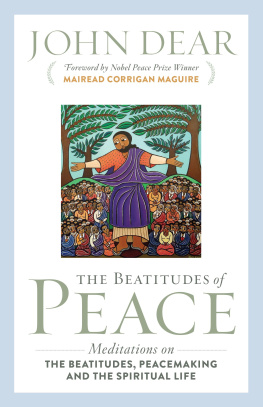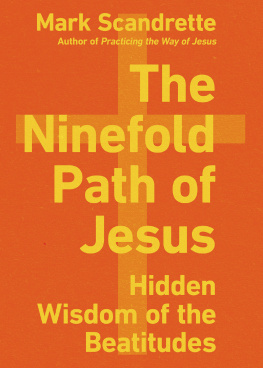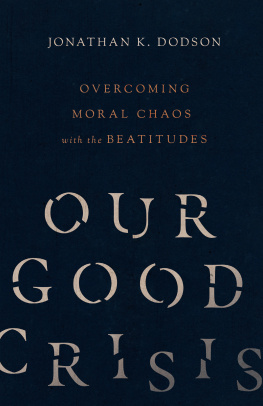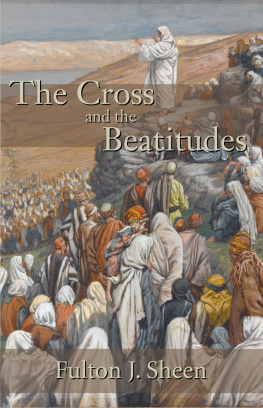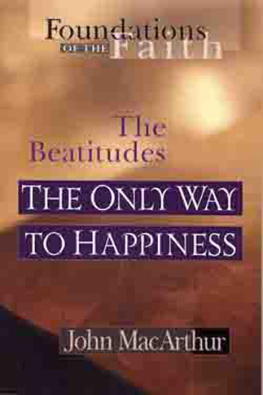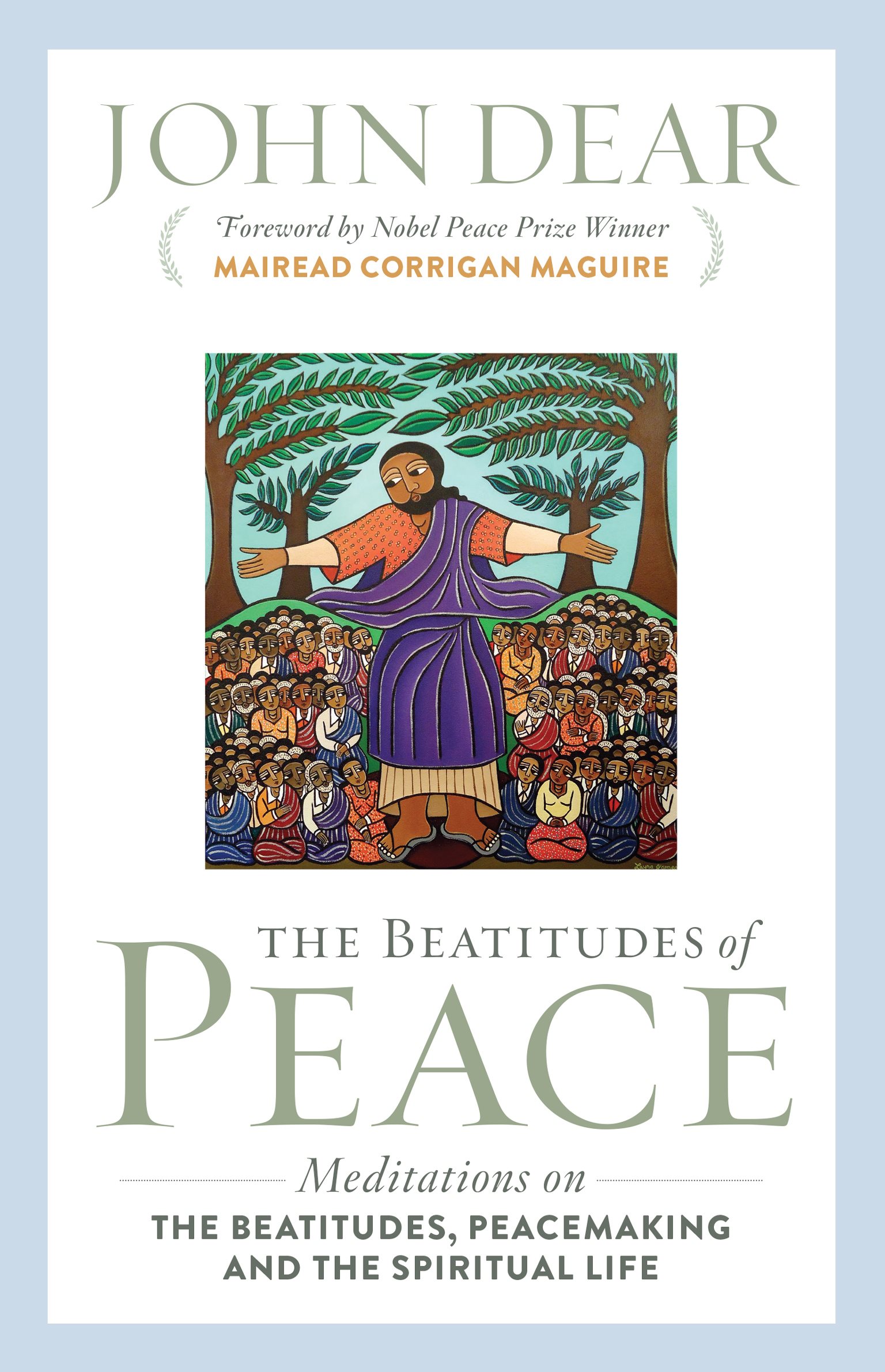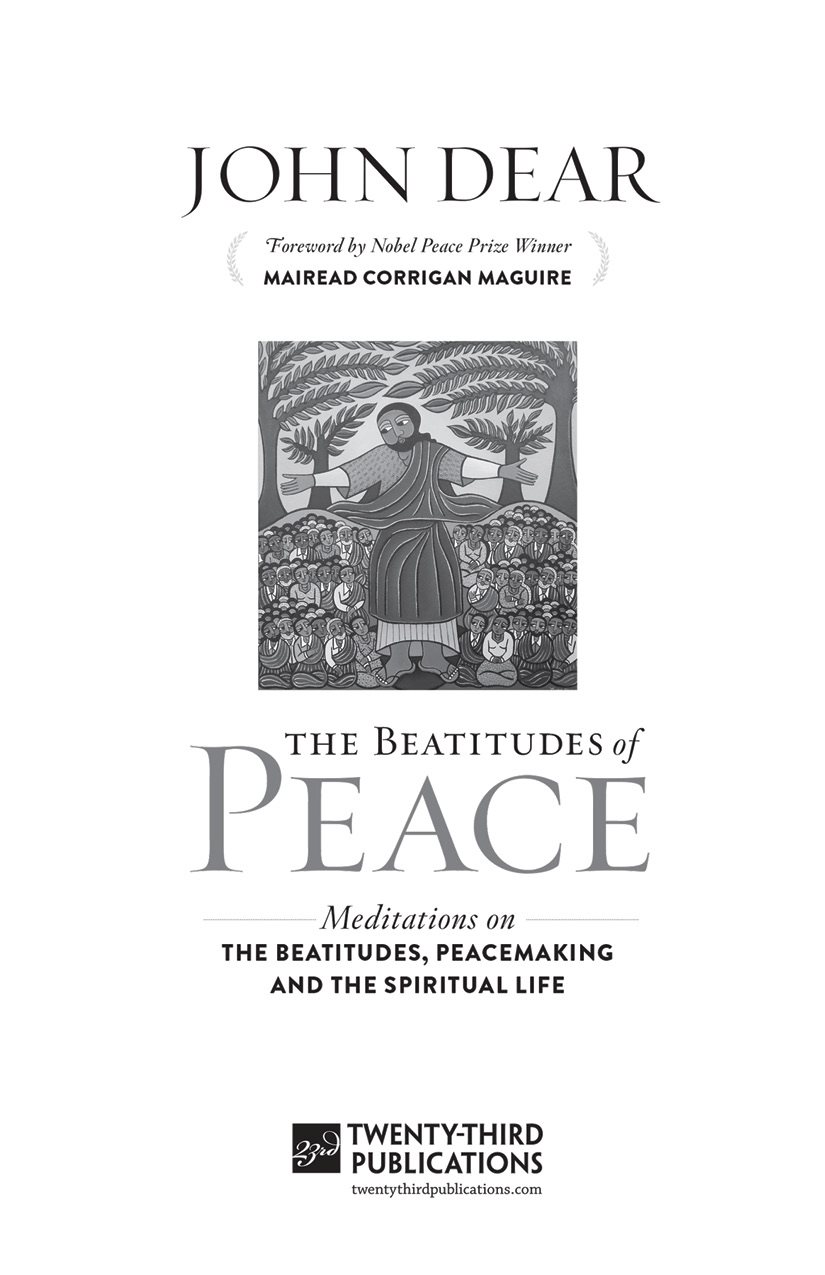Copyright 2016 John Dear. All rights reserved.
No part of this publication may be reproduced in any manner without prior written permission of the publisher. Write to the Permissions Editor.
For Fr. Ray East, and his sisters Gertrude East and Ceci East, friends and peacemakers, to say thank you for our pilgrimage to South Africa
W hen he saw the crowds, he went up the mountain, and after he had sat down, his disciples came to him and he began to teach them, saying:
Blessed are the poor in spirit; theirs is the kingdom of heaven.
Blessed are those who mourn; they will be comforted.
Blessed are the meek; they will inherit the earth.
Blessed are those who hunger and thirst for justice; they will be satisfied.
Blessed are the merciful; they will be shown mercy.
Blessed are the pure in heart; they shall see God.
Blessed are the peacemakers; they shall be called the sons and daughters of God.
Blessed are those who are persecuted for the sake of justice; theirs is the kingdom of heaven.
Blessed are you, when they insult you and persecute you and utter ever kind of evil against you falsely because of me. Rejoice and be glad, for your reward will be great in heaven. Thus they persecuted the prophets who were before you.
FOREWORD
In this beautiful book, Father John Dear describes the Beatitudes and the Sermon on the Mount as the blueprint for Christian discipleship, the job description of every Christian.
It is good to have a blueprint, and what better blueprint for those of us who wish to be followers of Jesus than the gospels and the teachings of Jesus as recorded in Matthew 57, The Sermon on the Mount.
I am reminded of the words of the late American theologian Fr. John L. McKenzie, who wrote, You cannot read the gospels and not know that Jesus was totally nonviolent.
After calling his disciples, Jesus, the prophet and teacher, told them how to find True Happiness in the Sermon on the Mount. Little wonder then that we are told that crowds flocked to listen to Jesus. He touched upon what every heart wishes exactly to know how to be happy.
In the Beatitudes, Jesus explains how the motive and the heart must be pure, and the greatest desire must be to do what God requires. Then Jesus assures the crowd that God will satisfy them fully! Everything must be done in a spirit of humility, knowing that we are spiritually poor. Everything must be done in a spirit of mercy and love.
We are also told in the Sermon of the Mount, Happy are those who work for peace; God will call them his children. Finally, we are reminded to be happy even when we are insulted and persecuted because we are followers of Jesus.
Jesus clearly calls us to be prophets, and often with prophesy comes persecution. It must have been hard for many in the crowd to hear this, but still Jesus assures them, Rejoice and be glad, for your reward will be great in heaven, and Happy are those who mourn; God will comfort them.
Two thousand years ago, when Jesus spoke to his disciples and the crowd, he was addressing people who knew all about pain, suffering, and persecution. They were all living under Roman occupation and daily experiencing poverty, slavery, and violence. Yet Jesus called them to be happy and to work for peace and justice with the promise that God will call them his children and bless them.
Today in our world, we face increasing violence, militarism, war, and environmental crisis. We are especially conscious that, in the land of Jesus birth, the Palestinian people live under Israeli military occupation. Therefore, the Sermon on the Mount is still very relevant for us all, especially for those who wish to follow Jesus.
Today, we are all called to be peacemakers and prophets, to work for freedom, peace, and social and political justice for all people, including the Palestinians. We are called to create a new way of living together nonviolently, welcoming people from all faiths and none, as one human family.
In this book, John Dear recounts his ongoing journey into nonviolence as a way of life, as the way of Jesus, and as the way to life. I hope it will inspire and touch many hearts.
Each of us can choose peace over war, nonviolence over violence, and love over hate. After reading and studying the Beatitudes, Jesuss Sermon on the Mount, and these reflections, may the Spirit of Love lead us to choose peace and nonviolence, and to abandon war and militarism once and for all.
Mairead Maguire
Belfast, Northern Ireland
www.peacepeople.com
December 2015
INTRODUCTION
Long ago, as a twenty-one-year-old dreamer, I flew to Israel by myself to make a pilgrimage through the Holy Land so that I could walk in the footsteps of Jesus. For days, I tramped through the cobblestoned alleyways of Jerusalems Old City, the rocky fields around Bethlehem, and the bustling streets of Nazareth. Like millions before me, I toured the holy sites in an effort to learn the landscape of Jesus. But I reserved the best for lasta week of camping by the Sea of Galilee.
I hardly spoke to a soul, or saw anyone for that matter. The place was deserted because only a few weeks before, Israel had invaded Lebanon, with the military and financial help of the United States, in a bombing war that killed 60,000 people in just three months.
It was the summer of 1982, and the Pentagon named their little war Operation Peace for Galilee.
There I was in the middle of itand totally clueless. I walked around in a daze, pondering the life of Jesus, meditating on the gospels, praying for the grace to know how to follow him and to spend my life doing that.
I was on my own Operation Peace for Galilee, even though I didnt know it. It was a far different kind of campaign that would have long-term consequences for my own life.
As I made my way to the north shore, I came upon the beautiful Chapel of the Beatitudes, built in the 1930s with funding from the Italian dictator Mussolini, on a hill overlooking the Sea of Galilee. Its an unusual, small, circular church with a tall, gray dome, surrounded on four sides by a square walkway with arches and pillars.
Standing alone inside, I noticed that the Beatitudes were written on the walls of the eight-sided church. As I read them, I was overcome by their message. I hadnt ever paid much attention to them or their countercultural challenge. But here in this beautiful setting, after weeks of walking, in the silence before the Sea of Galilee, they demanded my full attention. It dawned on me there and then that these words were the hope and prayer and vision of Jesus, and he was quite serious about them. They outlined the way Jesus wanted his followers to live. They were the blueprint for Christian discipleship, the job description of every Christian, the roadmap for the pilgrimage of every Christian. Suddenly, I realized that this included me! These words demanded to be lived, and not by someone else, but at that moment, by me. They proposed a specific course for my life, one that had never before occurred to me, one that terrified me as I considered their authority and the person who first spoke them.

